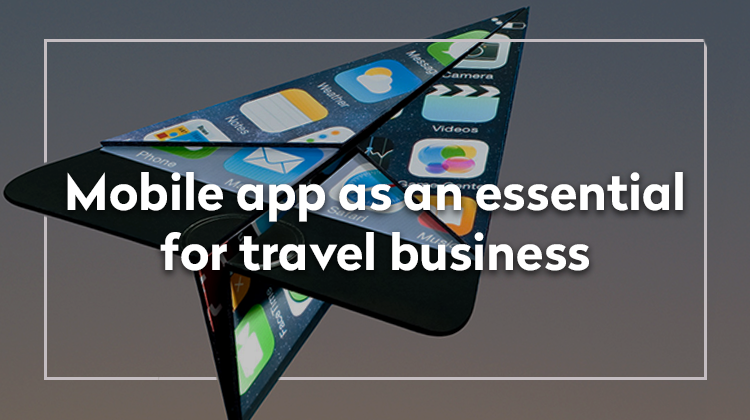The original article was published in 2020. We reworked the content based on new trends and industry knowledge.
The future of travel isn’t just about booking flights and hotels. It’s about crafting personalized journeys that resonate with individual desires. Imagine having a travel companion that knows you and the travel business so well you never have to worry about anything but having your phone nearby. AI could do this and so much more!
Ready to build next-gen travel apps with AI? Here’s how.
Why build another travel app
Regardless of competition, only a handful leads the market. Leaders come and go. This time, it could be you, with determination, fresh ideas, and powerful tools. The odds are in your favor.
- New era of personalized travel. AI can revolutionize the travel industry by offering hyper-personalized experiences, from curated itineraries to local recommendations, driving user engagement and loyalty.
- Disrupting the travel market. By automating tedious tasks and offering innovative features, your app can disrupt the traditional travel industry and capture a significant market share.
- Data-driven insights for strategic growth. AI-powered analytics can provide valuable insights into user behavior, allowing you to make data-driven decisions to optimize your app and attract new customers.
- Monetization opportunities. From premium subscriptions to partnerships with travel providers, an AI-powered travel app offers numerous monetization avenues, ensuring a strong return on investment.
- Building a future-proof business. By embracing AI, you’re positioning your app for long-term success in an industry that’s constantly evolving, ensuring your business remains relevant and competitive.
Two crucial features every travel app needs
What two things do you prioritize when getting ready to travel? That’s right! Booking tickets/accommodation/ride and planning itinerary. These will make core functionality of our travel app.

Booking / buying services
We make reservations (transportation, hotels, restaurants, tickets, and sightseeing tours) through our travel app. All you might need for a trip gets booked with just a few clicks. For international travel, booking services for tickets and accommodation are particularly popular. Users shop for best deals and set up notifications for price changes on their phones.
Travel planner
It’s important to present all the features of a travel app in a structured and user-friendly way. There may be dozens of legs, so users should have a clear overview of the entire trip. From booking flights to arriving at a hotel, exploring sights, and returning home – a smart pocket guide.
With a variety of AI-powered tools, travel experience will never be the same.
Seven ways to enhance your travel app with AI
Here is how to enhance our core features with AI capabilities.
#1 Personalized itinerary suggestions
AI-powered travel planning takes the guesswork out of your next adventure. By analyzing your preferences, past trips, and even your social media feeds, AI can craft a personalized itinerary tailored to your tastes. Whether you’re a culture vulture, an adrenaline junkie, or a relaxation seeker, AI can recommend the perfect activities, restaurants, and sights, ensuring every day of your trip is filled with unforgettable moments.
#2 Personalized accessibility preferences
AI will make travel more accessible. By considering your specific needs, such as wheelchair accessibility, visual or hearing impairments, or other requirements, AI can create personalized itineraries that highlight accessible accommodations, transportation options, and tourist attractions. This means you can explore the world with confidence, knowing that your trip is tailored to your needs.
#3 AI for sustainable travel planning
Sustainable travel is just around the corner. By analyzing transportation options, hotels, and activities, AI can recommend eco-friendly choices that minimize your environmental impact. Whether you’re a conscious traveler or simply looking to reduce your carbon footprint, AI-powered tools can help you plan a trip that’s both rewarding and responsible.
#4 AI-driven budget optimization
Budget travel made easy. With smart travel costs, users can benefit from budget-friendly alternatives or optimal booking times suggestions to save money. AI can also track price trends for flights, hotels, and excursions, notifying you when the best deals are available.
#5 Crowdsourced AI insights
AI could aggregate user reviews and data from past travelers to provide smarter, crowdsourced recommendations. By understanding which destinations and activities have received the best reviews from similar types of travelers, AI can suggest high-value experiences, restaurants, or tours.
#6 Natural language itinerary adjustments
Using Natural Language Processing (NLP), travelers could interact with the planner using voice commands or text input. For example, users could say, “I want to explore more cultural landmarks in Paris,” and the AI would update the itinerary accordingly. This provides a more intuitive and conversational way to make changes.
#7 Smart assistant for booking updates and cancellations
Using AI, the booking system could automatically handle modifications or cancellations, offering suggestions for alternative dates or accommodations. If a flight is canceled or delayed, the AI could proactively recommend rebooking options or the next best alternatives based on the user’s schedule and preferences.
How to prioritize a travel app feature list
To ensure a travel mobile app’s success, it’s crucial to prioritize features that meet users’ core needs. A robust geolocation system is essential, allowing users to access maps and navigate their destination seamlessly. Additionally, booking services, including hotel and flight reservations, are highly valued by travelers. Finally, integrated payment gateways streamline the booking process, saving users time and effort.
See the prioritized travel app feature list below.
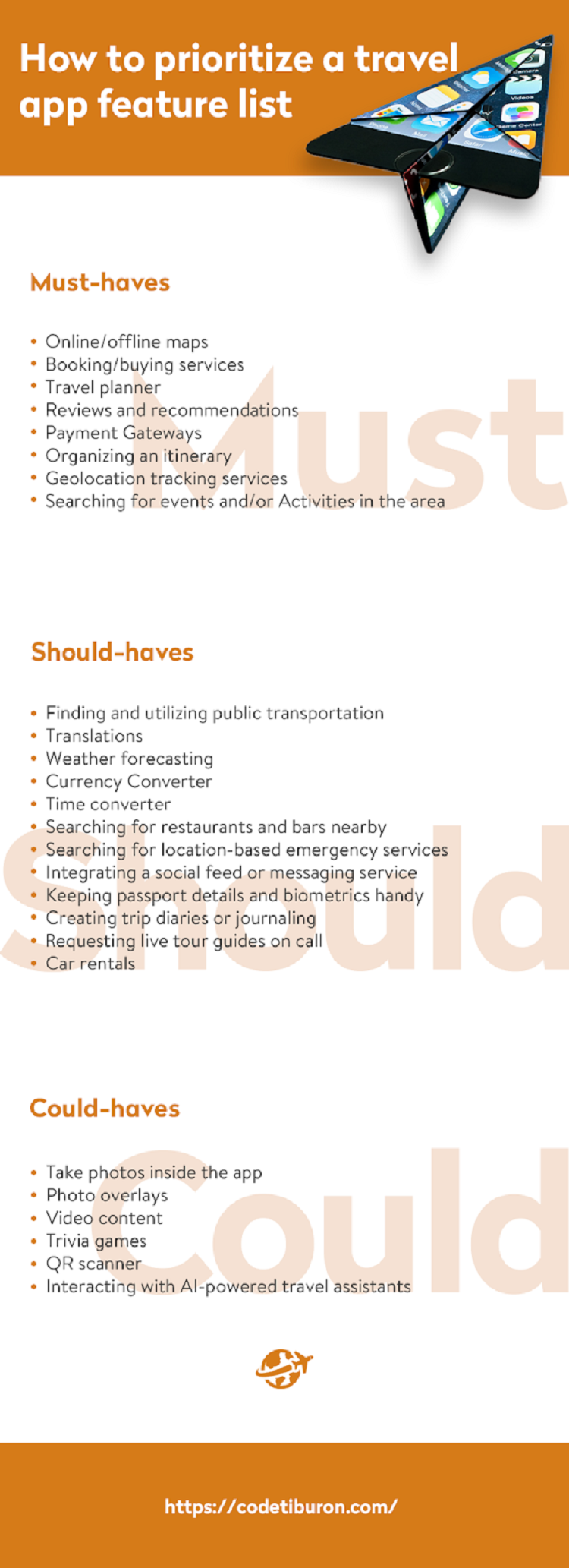
How to make a travel app in 2025: three development approaches
Choosing a development approach often comes with trade-offs. So there is no one-size-fits-all decision.
#1 Building from scratch
Creating a travel app from the ground up offers unparalleled control and customization. However, it demands significant technical expertise, time, and financial resources. This approach is ideal for businesses with a clear vision and the resources to execute it.
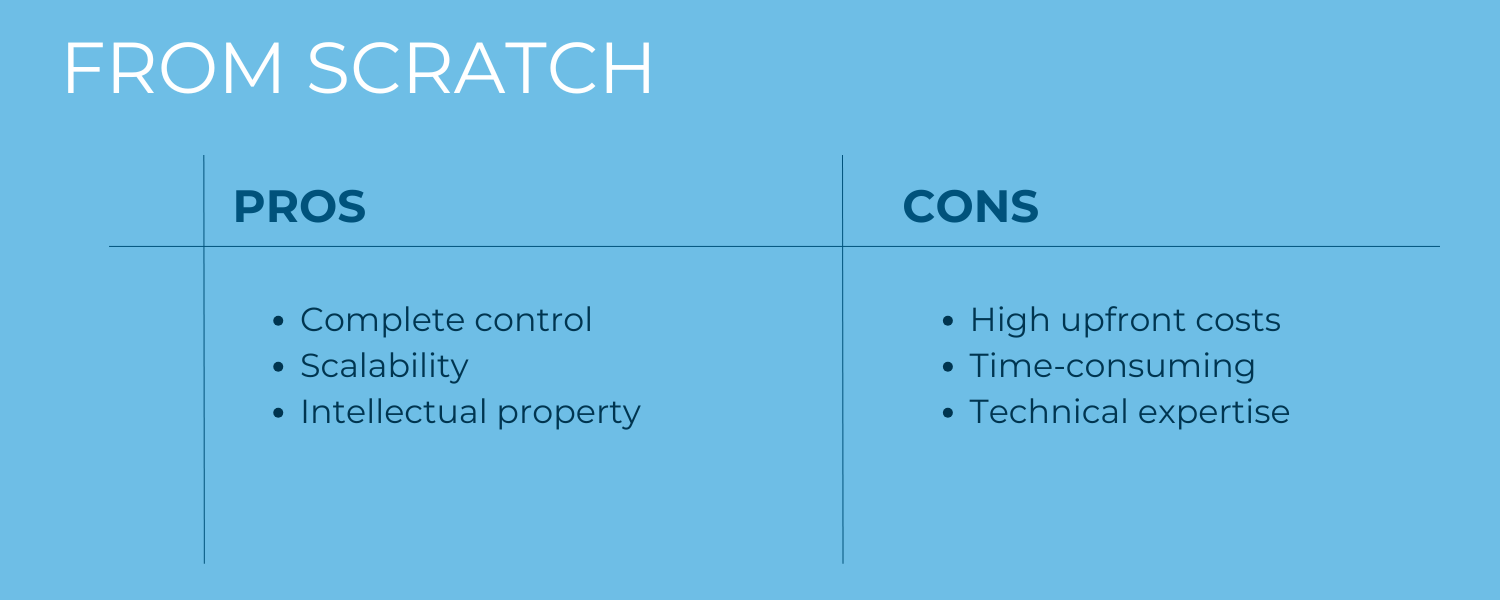
#2 App-building platforms
App-building platforms provide a user-friendly way to create travel apps without extensive coding knowledge. While they offer a quick and cost-effective solution, they may limit customization and scalability.
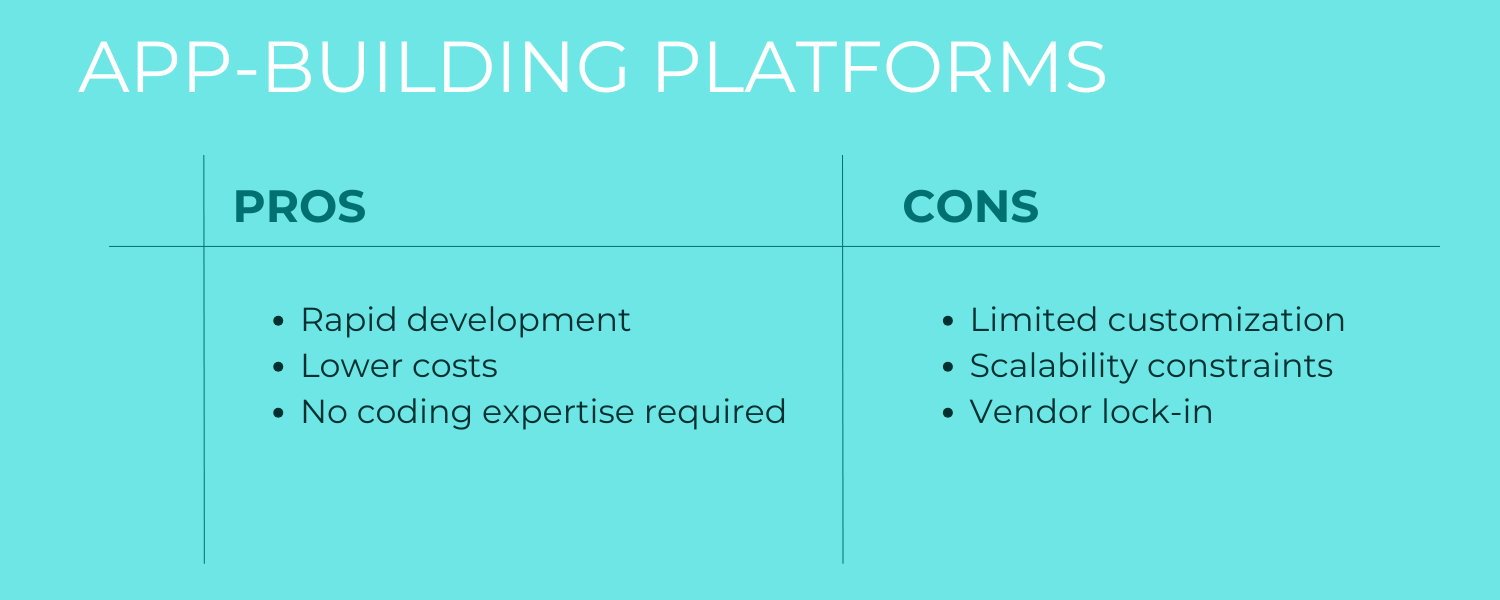
#3 Outsourcing development
Outsourcing app development to a specialized team can provide a balance between cost, quality, and time. It’s crucial to select a reputable development partner with a strong track record in travel app development.
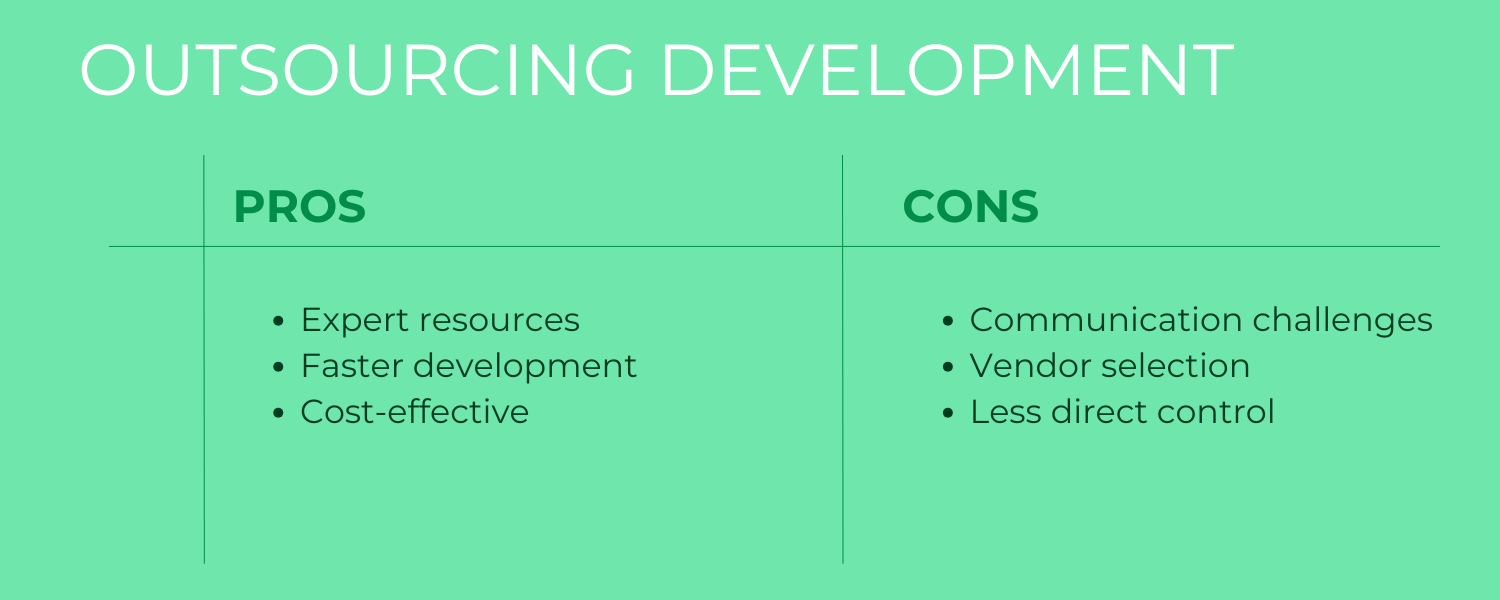
Travel app business model canvas
There is a great variety of travel mobile apps with different business models. Let’s map a white label travel app on a business model canvas.
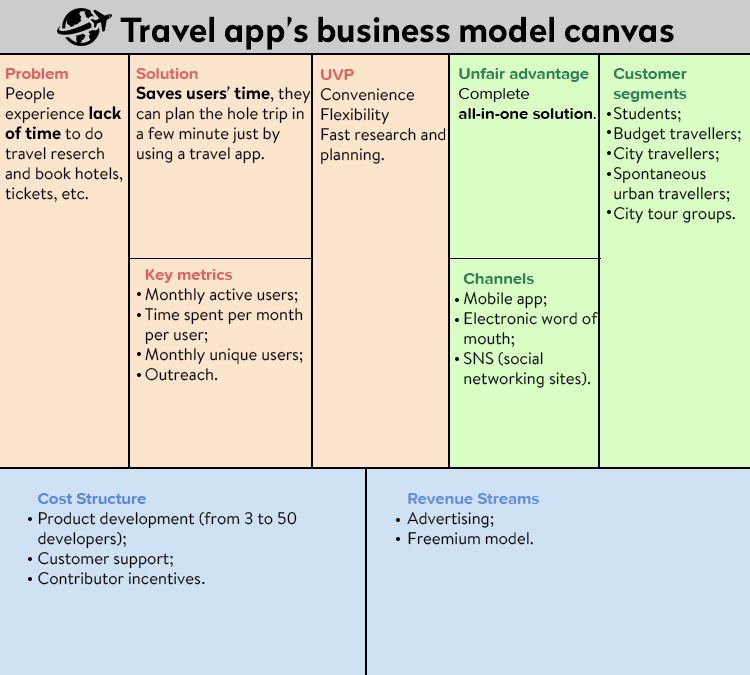
How to monetize a travel app in 2025
In today’s digital age, there are numerous innovative ways to monetize your travel app. Here are a few popular strategies.
Commission-based model
Partner with travel providers like hotels, airlines, and car rental companies. Earn a commission on every booking made through your app.
Case in point: Booking.com generates significant revenue by charging a commission on each hotel booking.
Subscription model
Offer premium features like exclusive deals, priority customer support, and personalized itineraries for a monthly or annual fee. Or consider tiered subscription plans to cater to different user needs.
Example: AllTrails offers a premium subscription that unlocks additional features like offline maps and personalized route planning.
Dynamic pricing
Utilize real-time data and AI to adjust prices based on demand, seasonality, and user behavior. Optimize revenue by charging premium prices during peak seasons and offering discounts during off-peak periods.
Example: American and United Airlines use dynamic pricing to adjust ticket prices based on factors like demand, competition, and time to departure.
In-app purchases
Sell virtual goods like currency, power-ups, or exclusive content to enhance user experience. Alternatively, consider offering in-app purchases to unlock premium features or remove ads. A lot of mobile apps offer in-app purchases to unlock additional features like offline access and ultra-personalized plans.
Advertising
Partner with relevant brands to display targeted ads within your app. Implement a user-friendly ad format that doesn’t disrupt the user experience.
Case in point: Kayak, a popular travel search engine, generates revenue through display ads and sponsored listings.
Data monetization
Collect and analyze user data to gain valuable insights into travel trends and preferences. Sell anonymized user data to travel industry partners for market research purposes.
Example: Google uses anonymized user data from Google Maps to improve its mapping services and personalized recommendations.
By combining these strategies, you can create a sustainable and profitable travel app that meets the evolving needs of modern travelers.
Find out more about different kinds of mobile app pricing models: How to Choose the Best Pricing Model for Your Mobile App.
Conclusion
In conclusion, an AI-powered travel app offers a myriad of benefits for both businesses and travelers. By leveraging the power of AI, travel companies can streamline operations, enhance customer experiences, and gain a competitive edge. Personalized recommendations, automated bookings, real-time updates, and seamless communication can reshape the future of travel. Ready to build yours?
How much does it cost to build a travel app with CodeTiburon?

